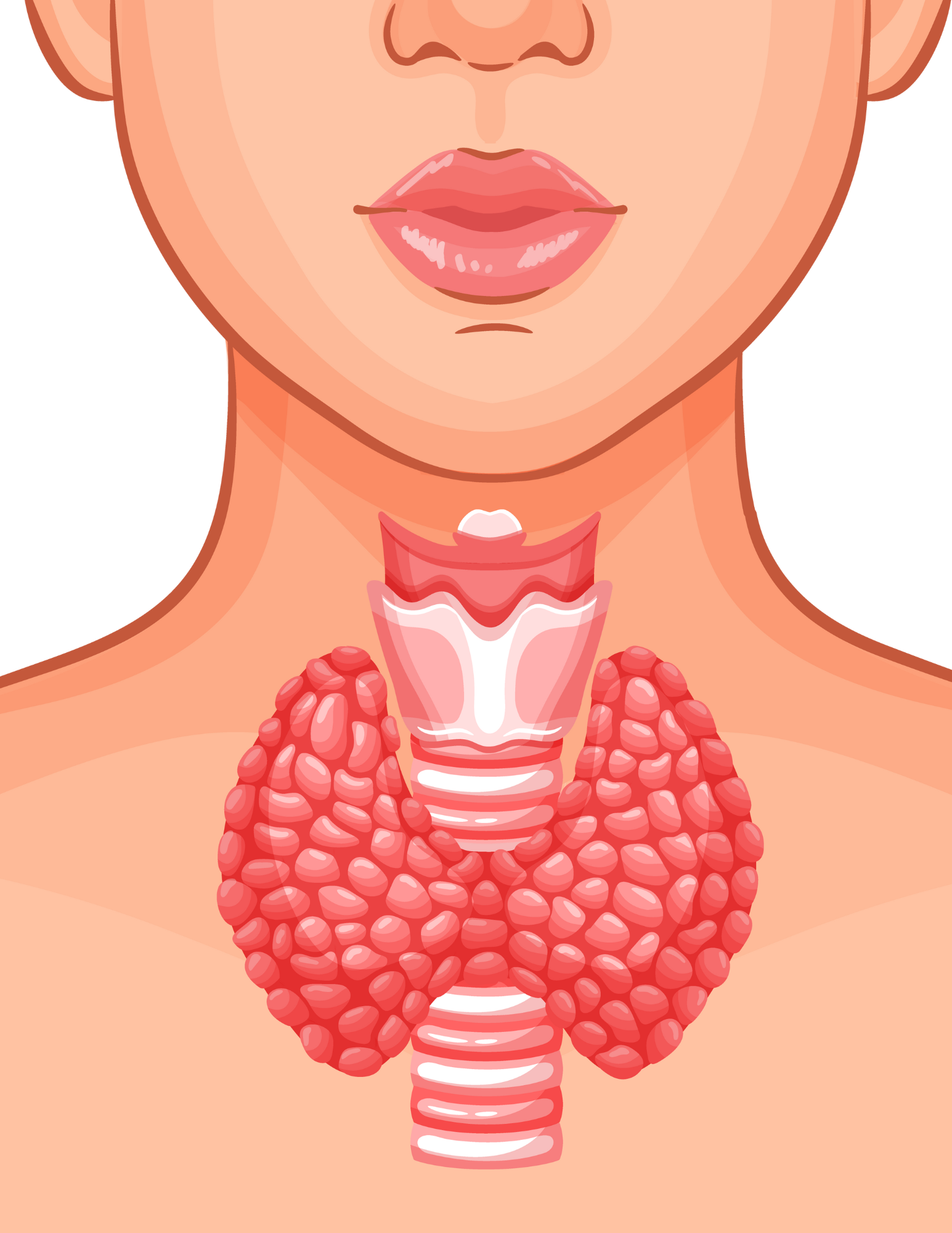Posted by Ralph Panttaja on Nov 3rd 2025
Importance of Thyroid and Adrenal Health
Importance of Thyroid and Adrenal Health
The intricate dance of hormones within our bodies is a marvel of nature.
The thyroid and adrenal glands, two key players in this dance, are critical to our overall health.

Their interrelationship, often overlooked, plays a vital role in maintaining our wellness.
In this article, we delve into the importance of thyroid and adrenal support. We explore their functions, the symptoms of imbalance, and the consequences of neglecting these crucial glands.
We also provide practical wellness tips and holistic health strategies to support these vital components of our endocrine system.
Whether you're a healthcare professional, a patient with thyroid or adrenal disorders, or simply someone interested in holistic health, this article offers valuable insights.
The Critical Interrelationship Between Thyroid and Adrenal Health
The thyroid and adrenal glands are two key components of our endocrine system. They work in tandem to regulate numerous bodily functions.
The thyroid, located in the neck, is responsible for controlling our metabolism. It influences our energy levels, body temperature, and even our mood.
On the other hand, the adrenal glands, perched atop our kidneys, produce hormones like cortisol and adrenaline. These hormones are vital for our body's stress response and metabolism.
Together, these glands form a critical part of the hypothalamic-pituitary-adrenal (HPA) axis, which maintains our hormonal balance.
Understanding the Thyroid Gland and Its Functions
The thyroid gland plays a pivotal role in our body. It produces hormones that regulate our metabolism, energy levels, and overall bodily functions.
These hormones, namely thyroxine (T4) and triiodothyronine (T3), influence every cell in our body. They control how quickly we burn calories and how fast our heart beats.
The Adrenal Glands: Hormones and Stress Response
The adrenal glands are small but mighty. They produce hormones that help us respond to stress, regulate our blood pressure, and maintain our metabolism.
Cortisol, one of the primary hormones produced by the adrenal glands, is particularly important. It helps regulate our immune response, maintain glucose levels, and control our body's use of fats, proteins, and carbohydrates.
The Hypothalamic-Pituitary-Adrenal (HPA) Axis Explained
The HPA axis is a complex set of interactions between the hypothalamus, pituitary gland, and adrenal glands. It plays a crucial role in maintaining hormonal balance in our bodies.
When we experience stress, the HPA axis is activated. This results in the production of cortisol, which helps our body respond to the stressor. Over time, chronic stress can disrupt this delicate balance, leading to a host of health issues.
Symptoms and Consequences of Thyroid and Adrenal Imbalances
Imbalances in thyroid and adrenal function can lead to a variety of symptoms. These symptoms often overlap, making diagnosis challenging.
Thyroid imbalances can result in symptoms such as:
- Weight gain or loss
- Fatigue
- Mood swings
- Sensitivity to cold or heat
- Dry skin and hair
Adrenal dysfunction, on the other hand, can lead to symptoms like:
- Chronic fatigue
- Sleep disturbances
- Blood pressure irregularities
- Unexplained weight loss
- Hyperpigmentation
Recognizing Thyroid Dysfunction: Hypothyroidism and Hyperthyroidism
Thyroid dysfunction often manifests as either hypothyroidism or hyperthyroidism. Hypothyroidism, characterized by an underactive thyroid, can lead to weight gain, fatigue, and depression.
Hyperthyroidism, on the other hand, is caused by an overactive thyroid. It can result in weight loss, rapid heart rate, and anxiety. Both conditions require medical attention and management.
Identifying Adrenal Dysfunction: Fatigue and Beyond
Adrenal dysfunction can be subtle and often goes unrecognized. It can manifest as chronic fatigue, sleep disturbances, and blood pressure irregularities.
In severe cases, it can lead to adrenal crisis, a life-threatening condition characterized by severe abdominal pain, dehydration, and loss of consciousness. Early recognition and treatment of adrenal dysfunction are crucial for maintaining overall health.
Strategies for Supporting Thyroid and Adrenal Health
Supporting thyroid and adrenal health requires a comprehensive approach. This includes dietary changes, lifestyle modifications, and stress management techniques.
Here are some strategies to consider:
- Consuming a balanced diet rich in nutrients
- Regular exercise
- Adequate sleep
- Stress management techniques
- Regular health check-ups
Dietary Recommendations for Endocrine Health
Diet plays a crucial role in maintaining thyroid and adrenal health. Consuming a balanced diet rich in nutrients can support hormone production and balance.
Include iodine-rich foods, such as seaweed and fish, for thyroid health. For adrenal health, consider foods rich in vitamin C, B vitamins, and magnesium, such as citrus fruits, leafy greens, and nuts.
Lifestyle Changes to Manage Stress and Enhance Wellness
Lifestyle changes can significantly impact thyroid and adrenal health. Regular exercise, for instance, can help regulate hormone levels and reduce stress.
Adequate sleep is also essential, as it allows the body to rest and recover. Stress management techniques, such as yoga and meditation, can also support adrenal health by reducing cortisol levels.
The Role of Holistic Health Practices in Endocrine Balance
Holistic health practices can play a significant role in maintaining endocrine balance. These practices focus on the whole person, considering physical, emotional, and mental health.
Here are some holistic practices to consider:
- Regular exercise
- Adequate sleep
- Mindfulness and meditation
- Yoga
- Acupuncture
Incorporating Exercise, Sleep, and Mindfulness
Regular exercise can help regulate hormone levels and reduce stress. It can also improve sleep quality, another critical factor in maintaining hormonal balance.
Mindfulness practices, such as meditation and yoga, can help manage stress levels. These practices can reduce cortisol levels, supporting adrenal health.
The Benefits of Alternative Therapies and Adaptogens
Alternative therapies, such as acupuncture, can also support thyroid and adrenal health. Acupuncture can help balance the body's energy flow, potentially improving endocrine function.
Adaptogens, a class of herbs, can help the body adapt to stress and support adrenal function. Examples include ashwagandha, rhodiola, and holy basil. These herbs can be incorporated into the diet or taken as supplements under professional guidance.
Conclusion: Embracing a Comprehensive Approach to Thyroid and Adrenal Health
In conclusion, maintaining thyroid and adrenal health requires a comprehensive approach. This includes a balanced diet, regular exercise, stress management, and holistic health practices. By understanding the interplay between these factors, individuals can take proactive steps towards achieving optimal endocrine health and overall wellness.
 Fuel your life with the purest vitamins
Fuel your life with the purest vitamins
